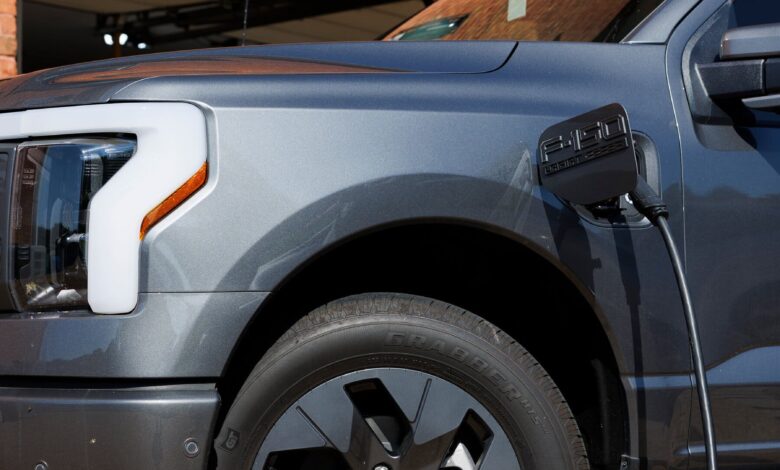Despite concerns about battery degradation from frequent use, automakers like Ford and General Motors are promoting the versatility of their electric vehicles for powering homes and providing backup power.
Electric vehicles offer a practical and eco-friendly solution to power homes during blackouts.
In the face of increasing extreme weather events and power outages, a new trend is emerging: electric vehicles coming to the rescue as backup power for homes. Energy experts predict that electric cars will not only help keep the lights on but also support strained electric grids, offering a promising solution for the future.
Meet John and Rachelle Reigard, a couple from Nashville who experienced the benefits firsthand. When a powerful storm knocked out their neighborhood’s power, their Ford F-150 Lightning electric pickup truck stepped in. While their neighbors were left in the dark, the Reigards’ home remained illuminated, thanks to their electric vehicle.
“You can look at all the houses around us, and they’re all off,” said Mr. Reigard, who bought the pickup, a Ford F-150 Lightning, more than a year ago. “A lot of people ask the question: ‘How do you have power?’”
This emerging concept has caught the attention of both auto and energy industries. Electric trucks like the F-150 Lightning and upcoming electric Chevrolet Silverado can store more energy than traditional home batteries, making them ideal for powering essential appliances during outages. When combined with a home solar system, families can have days or even weeks of reliable electricity.
Utilities are also exploring this idea. By tapping into electric vehicles during times of high energy demand and releasing power when it’s scarce, they can act as a “bigger rubber band” to stabilize grids during fluctuations. The greater use of electric vehicles in this way is expected to reduce carbon emissions, as they encourage reliance on renewable energy sources like solar and wind.
While the potential benefits are significant, the technology is still in its early stages. Some early adopters have faced challenges with the complexity of connecting electric cars to homes, but industry experts are working to simplify the process. The goal is to make it easy for homeowners to combine solar panels, home batteries, and electric vehicles for a seamless backup power solution.
Despite concerns about battery degradation from frequent use, automakers like Ford and General Motors are promoting the versatility of their electric vehicles for powering homes and providing backup power.
“It’s really a game-changer,” said Ryan O’Gorman, a business development energy services manager at Ford. “The truck is a giant power source. E.V.s are large and can power the house for several days.
”These companies aim to offer packages and services to optimize the use of electric vehicles, making them accessible and affordable for customers.
The concept isn’t limited to just powering homes; electric vehicles could also play a role in stabilizing the grid by supplying energy during peak demand periods. While there are still hurdles to overcome, the potential benefits are undeniable, and many believe that electric vehicles could be a game-changer in the future of reliable, sustainable energy.
Electric vehicles are no longer just for the roads; they could be the solution to keeping our homes powered during blackouts and supporting the electric grid. With advancements in technology and collaboration between energy and auto industries, we might see more families relying on their electric cars to light up their lives, even during the darkest times.





